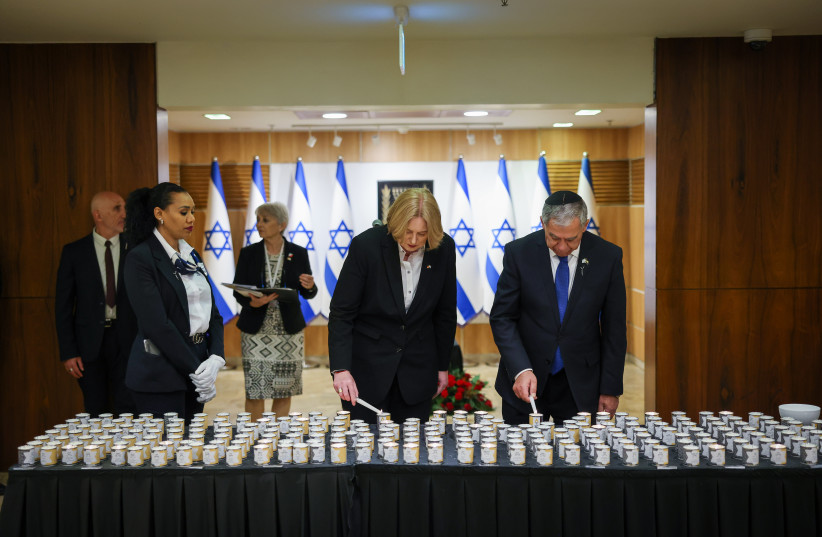German Bundestag President Bärbel Bas visited Yad Vashem on Wednesday, accompanied by Knesset Speaker Mickey Levy. Together, they toured the “Flashes of Memory: Photography during the Holocaust” exhibition and the Museum of Holocaust Art, participated in a memorial ceremony in the Hall of Remembrance and visited the Children’s Memorial.
Bas also heard about the Nathan family, who lived next door to where Bas lives today. In November 1938, following Kristallnacht, Ferdinand Nathan was arrested and incarcerated in Dachau. After his release, he and his wife, Irma, realized they had no future in Germany and began preparing to save their two children, Ruth and Alfred, from certain doom.
In early 1939, Ruth and Alfred were sent to Amsterdam, while their parents remained behind. Due to the outbreak of war, Irma and Ferdinand found themselves cut off from their beloved children. In 1942, Ferdinand and Irma were deported to the Izbica Ghetto and were never heard from again. Their children were deported in 1943 from Westerbork to Sobibor, and they were murdered shortly after their arrival.
Yad Vashem chairman Dani Dayan presented this research, including relevant documentation found in Yad Vashem’s archives, to Bas. She was visibly moved by the story, and after attending the ceremony for Holocaust Remembrance Day in Yad Vashem’s Warsaw Ghetto Square, she filled out a page of testimony for Irma Nathan. Irma’s name was to be read aloud in the “Unto Every Person There is a Name” ceremony, with Bas attending.
“Germans cut short the lives of six million Jews,” Bas said. “I think of the dead with sadness and shame. Germans denied the right of so many Jewish women, men and children to live. Nowadays, anyone who tells the stories of those murdered restores the humanity of the millions of victims. We must all do our part to preserve their memory.”

The page of testimony filled out by Bas will be added to the more than 2,800,000 pages of testimony collected by Yad Vashem over the past seven decades.
To date, Yad Vashem’s Central Database of Shoah Victims’ Names contains more than 4,800,000 names of the murdered Jews of Europe and North Africa. The names are accessible to the public on its website and are searchable in six languages.
